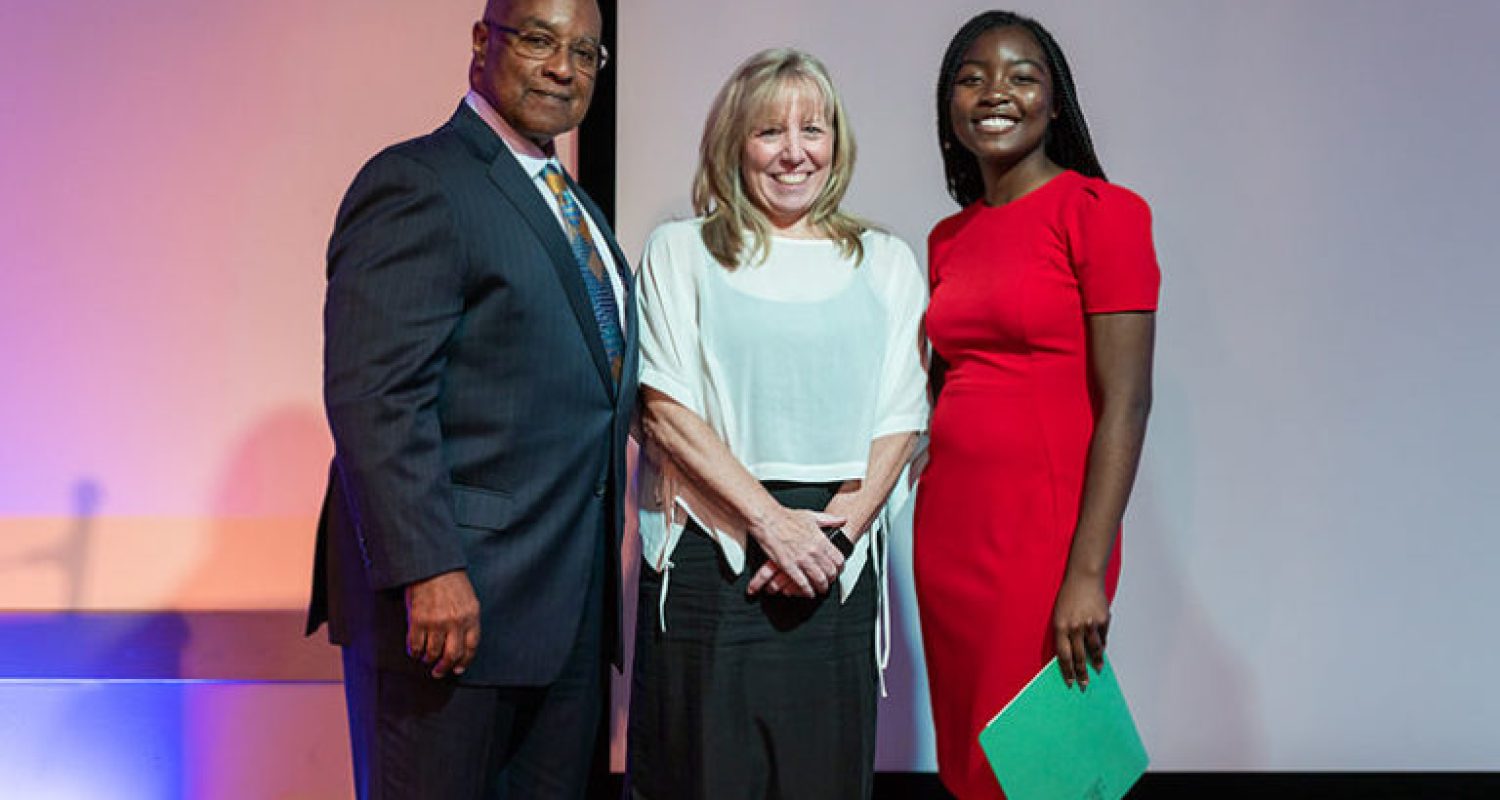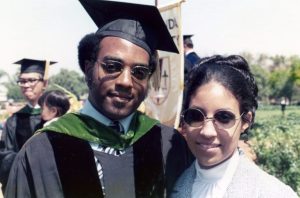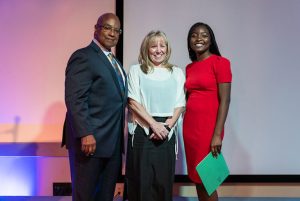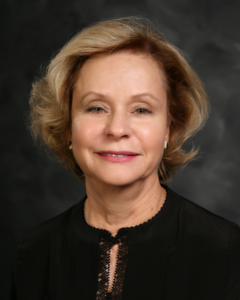ALUMNUS OF THE YEAR: Leroy A. Reese ’72

By Donna L. Carlson ’69

Leroy A. Reese ’72 was named the 2022 Alumnus of the Year at the 90th Annual Postgraduate Convention Gala.
It was a medical problem of his own—an evanescent heart murmur—that set 8-year-old Leroy Reese firmly on the path to a career in medicine. “There must’ve been 11 people in white coats in that New York hospital room, all checking my heart,” he recalls, “listening for a murmur that had been present earlier but that now nobody could hear.” After he was released, as they rode home on a city bus, he told his mother: “I’m going to be a doctor.” An immigrant from the American Virgin Islands who worked as a housekeeper, she had little education herself, but she supported his dream. Through more than 20 years of Adventist education—at the Manhattan elementary school, at Northeastern Academy in Harlem, and Atlantic Union College in Lancaster, Massachusetts, plus four years in California at the Loma Linda University School of Medicine (LLUSM) and residency training in Los Angeles—he never wavered from commitment to his chosen profession. Nor did he waver from his commitment to Adventist education: “I applied to only one college, one medical school, and one residency program: at the Ellen G. White (emphasis original) Memorial Hospital … Next to the Bible, “Ministry of Healing”1 was my most important textbook in medical school.”
In addition to medicine, a young Leroy Reese had another passion: to end racial imbalance in the profession, beginning with his own school. During their sophomore year, he and classmate Fitzgerald Jenkins ’72 decided to “do something” about the low number (three) of Black students in their class. They weren’t sure if they would have much influence, Dr. Reese says, “After all, we were only students.” But they knew they had to try. Over the next few weeks, with help from a couple of Black senior medical students, they put together a “document” which they presented to LLU president, David J. Bieber, PhD, and to vice president for academic affairs, Robert Cleveland, PhD. The document outlined the problem and suggested the university create a position for a Black assistant admissions officer whose job it would be to search for bright Black students in Adventist academies and colleges and encourage them to consider a career in medicine. It was Cleveland, Dr. Reese says, who told them they needed an advisor and who arranged for the students to present their document to the LLU Board of Directors. Wisely, the students chose Elder Calvin Rock to advise and to accompany them to the board session: “We gave the members two weeks to respond—and they did! They adopted our document without any changes and created the new administrative position.”2
After finishing an obstetrics and gynecology (OB-GYN) residency at “the White,” Dr. Reese settled in Los Angeles where, until his recent retirement, he practiced for more than 50 years. His specialty, he points out, provides unique opportunities for physicians to bond with their patients. Obstetrics care requires regular visits over nine months, generating relationships that can last through generations. Not infrequently, he has delivered the children of children he had delivered 25 years earlier! Similarly, gynecology lets him follow his patients through menopause and beyond. The bonds thus formed often become friendships that reach outside the hospital. He recounts as examples two stories: the first is of a patient, an operating room nurse, who asked him to officiate at her wedding vow renewal ceremony (feeling he was not properly trained as a clergyman, he refused); the second is about a patient who invited him to speak at her large family reunion, where about a hundred relatives came from all over the country (this time he accepted).
Throughout his years of clinical practice, and despite his busy schedule, Dr. Reese served in many administrative capacities at the White. He was president of the medical staff for two years, chair of the OB-GYN department for 27 years, and associate dean of the School of Medicine’s Los Angeles campus for 30 years. He also served for 30 years as a member of the LLU Board: 20 as a voting member and 10 as an emeritus member. And he has received numerous professional honors. A skilled instructor, he has twice been recognized by the Council on Resident Education in Obstetrics and Gynecology3 for excellence in teaching. Both the School of Medicine and the university have given him Distinguished Service awards. In 1987, the Black Alumni of Loma Linda (“BALL”—an organization he helped found) chose him Black Alumnus of the Year.4 In 2001, he was recognized as an Honored Alumnus by the Alumni Association, School of Medicine of Loma Linda University.

Notwithstanding the accolades, Dr. Reese has never forgotten his early commitment to the cause of advancement for Black and minority medical students and alumni. In 1999, he pioneered the Minority Introduction to the Health Sciences program. Every summer, 20 minority students from both Adventist and public schools come to the Loma Linda campus for three weeks. As part of a financially subsidized program, they live in the dorms with a mentor, eat in the cafeteria, meet current LLU students, and are introduced to the health sciences career programs available here. Over the years, 350 students have participated, and many have become alumni of the university. In 2021, an endowment was established in Dr. Reese’s name to support the continuing work of the program. This year, in a separate program, a four-year minority medical student scholarship was awarded to its first recipient.
To this day, though he carries a special burden for minorities, Dr. Leroy Reese remains involved in promoting Seventh-day Adventist Christian medical education for all students—and waxes enthusiastic when he talks about it! “I love this school and I remain committed to the Loma Linda mission ‘To make man whole’ and to the practice of medicine in a way that demonstrates the love of Jesus.”
Endnotes
- Author: Ellen G. White.
- Dr. Gaines Partridge was chosen to fill the slot, which he would hold for 21 years, Dr. Reese says, diligently searching for qualified Black undergraduates to join the medical school. It was Dr. Partridge who suggested the construction of the Good Samaritan statue that now stands at the center of the campus.
- The Council is a unit of the American College of Obstetrics and Gynecology (ACOG), the national accrediting body of the specialty.
- BALL includes alumni from all of the LLU professional schools, not just the School of Medicine.

Dr. Carlson has a long history of involvement and leadership within the Alumni Association. She has served as president of both the Alumni Association (1996–1997) and the Holding Fund (2013) and served years as an associate editor of the JOURNAL.

